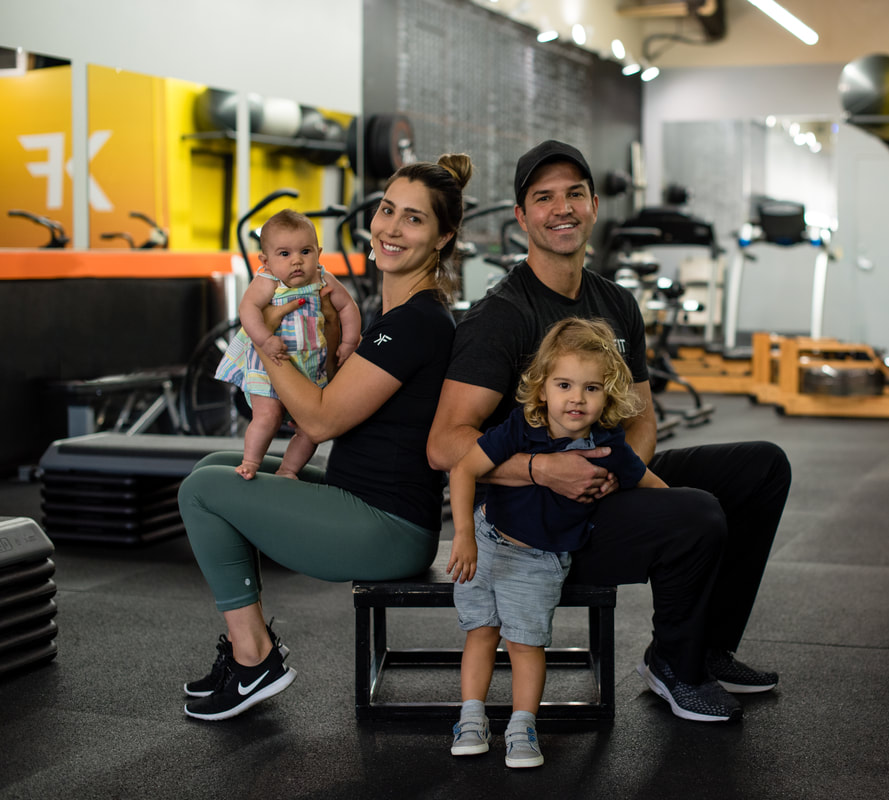For most of us, summer time often triggers good memories and brings out the carefree side in us. It’s a great season to re-evaluate what's been working for us, and what isn't. Just like connecting with a friend, set a date to have a "catch up" with yourself of sorts. Go through this list, and pick a couple hacks to focus on in the back half of the year. (2023 will be here before we know it!)
1.) Reset Your Biochemistry.
Imagine being angry about something or someone for the whole day. Notice how those stress hormones (loads of cortisol) make every other decision and encounter stressful and negative. The opposite occurs when you move, love and reflect daily.
It triggers such a positive flush of hormones in the body, that even if you’re dealing with tough events, your body is able to calm your nerves and mind to a more manageable stage.
Nothing is healthier to the body and brain than a good 'ol rush of neurotransmitters in the body on a daily basis. Endorphins, norepinephrine, dopamine, serotonin are all naturally occurring chemicals in the body that are triggered when you move, love, and reflect. Do more of that.
2.) Pick the right Emotional Home.
We all have an emotional home that we live in. How you fill this home with the emotions you choose is the quality of life you live. Every one of us is conditioned to return to a set of emotions where we spend most of our days, even if they don’t serve us well.
It’s kind of like food. We all have 4-5 food combos that we tend to go to, regardless how unhealthy they may be. Emotions are the same way- we are conditioned to always go back to the comfort emotions.
Being able to identify and reframe them enriches your emotional home. And where you live emotionally is where you live. That’s the ultimate determining factor on the quality of our lives.
3.) Take Ownership.
Our ego often wants to be right, and we try to cover up our mistakes (mistakenly thinking it will make us feel better) by pointing fingers and placing blame on the government, other people and situations. There is something calming about taking ownership for every action you take. It puts you in control to do the right thing.
4.) Protect your Attention.
Time is not our greatest asset. Our ATTENTION is a far more valuable asset that we must protect daily. We can have all the time and money in the world, but if our attention is taken by people and activities that de-energize us all day, then we’re not maximizing what’s available to us for optimum living. Find the right equilibrium of your daily attention by balancing out the situations, people, medias that energize you vs those that take the life out of you–which can often be things out of our control.
5.) Look for the good in everyone.
This is one I’m always working on. It’s a toughie, but here’s a trick I learned from author Richard Carlson who wrote, "Don’t Sweat the Small Stuff...and It’s All Small Stuff." What if everyone you run into on a daily basis were put on this earth to teach you lessons?
What if the obnoxious driver or the disrespectful teenager were there to teach you about patience? What if the homeless person was there to teach you about compassion? This automatically shifts your anger state into a beautiful state–a much healthier way to live and deal with life’s difficulties.
6.) Be a value adder, not an energy vampire.
Every time you walk into a room, you have the choice to come in with a smile and being the first to say hello, or you come in thinking about your life’s problems, ignore everyone and just wait for someone to be nice to you.
Practice proactive kindness and you’ll experience a two way winning streak, you’ll make the person on the receiving end feel good and you’ll feel even better by extending that love.
7.) Feed Your Spirit.
This does not have to be religious based. Being in a state of gratitude is life changing. As cheesy as this sounds, gratitude is one of the most studied emotions in the field of positive psychology. And the research points to profound outcomes.
Another well researched activity is meditation. You don’t have to be a monk to do this, just find a quiet spot and focus on your breathing. Try to find the “gap” which is the area between your thoughts. Initially this will be hard, but start slow. Two minutes will do it. Build up from there.
Everyone focuses on something. Where focus goes, energy flows. Learn to refocus on the things that truly matter to you by aiming to control things that are under your control and learn to let go of those you cannot. As mentioned in the serenity prayer by author Reinhold Niebuhr, “God grant me the serenity to accept the things I cannot change; courage to change the things I can; and wisdom to know the difference.”
1.) Reset Your Biochemistry.
Imagine being angry about something or someone for the whole day. Notice how those stress hormones (loads of cortisol) make every other decision and encounter stressful and negative. The opposite occurs when you move, love and reflect daily.
It triggers such a positive flush of hormones in the body, that even if you’re dealing with tough events, your body is able to calm your nerves and mind to a more manageable stage.
Nothing is healthier to the body and brain than a good 'ol rush of neurotransmitters in the body on a daily basis. Endorphins, norepinephrine, dopamine, serotonin are all naturally occurring chemicals in the body that are triggered when you move, love, and reflect. Do more of that.
2.) Pick the right Emotional Home.
We all have an emotional home that we live in. How you fill this home with the emotions you choose is the quality of life you live. Every one of us is conditioned to return to a set of emotions where we spend most of our days, even if they don’t serve us well.
It’s kind of like food. We all have 4-5 food combos that we tend to go to, regardless how unhealthy they may be. Emotions are the same way- we are conditioned to always go back to the comfort emotions.
Being able to identify and reframe them enriches your emotional home. And where you live emotionally is where you live. That’s the ultimate determining factor on the quality of our lives.
3.) Take Ownership.
Our ego often wants to be right, and we try to cover up our mistakes (mistakenly thinking it will make us feel better) by pointing fingers and placing blame on the government, other people and situations. There is something calming about taking ownership for every action you take. It puts you in control to do the right thing.
4.) Protect your Attention.
Time is not our greatest asset. Our ATTENTION is a far more valuable asset that we must protect daily. We can have all the time and money in the world, but if our attention is taken by people and activities that de-energize us all day, then we’re not maximizing what’s available to us for optimum living. Find the right equilibrium of your daily attention by balancing out the situations, people, medias that energize you vs those that take the life out of you–which can often be things out of our control.
5.) Look for the good in everyone.
This is one I’m always working on. It’s a toughie, but here’s a trick I learned from author Richard Carlson who wrote, "Don’t Sweat the Small Stuff...and It’s All Small Stuff." What if everyone you run into on a daily basis were put on this earth to teach you lessons?
What if the obnoxious driver or the disrespectful teenager were there to teach you about patience? What if the homeless person was there to teach you about compassion? This automatically shifts your anger state into a beautiful state–a much healthier way to live and deal with life’s difficulties.
6.) Be a value adder, not an energy vampire.
Every time you walk into a room, you have the choice to come in with a smile and being the first to say hello, or you come in thinking about your life’s problems, ignore everyone and just wait for someone to be nice to you.
Practice proactive kindness and you’ll experience a two way winning streak, you’ll make the person on the receiving end feel good and you’ll feel even better by extending that love.
7.) Feed Your Spirit.
This does not have to be religious based. Being in a state of gratitude is life changing. As cheesy as this sounds, gratitude is one of the most studied emotions in the field of positive psychology. And the research points to profound outcomes.
Another well researched activity is meditation. You don’t have to be a monk to do this, just find a quiet spot and focus on your breathing. Try to find the “gap” which is the area between your thoughts. Initially this will be hard, but start slow. Two minutes will do it. Build up from there.
Everyone focuses on something. Where focus goes, energy flows. Learn to refocus on the things that truly matter to you by aiming to control things that are under your control and learn to let go of those you cannot. As mentioned in the serenity prayer by author Reinhold Niebuhr, “God grant me the serenity to accept the things I cannot change; courage to change the things I can; and wisdom to know the difference.”



 RSS Feed
RSS Feed


